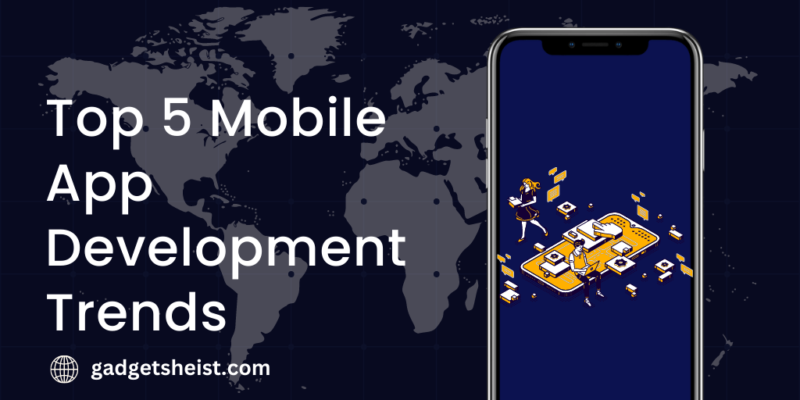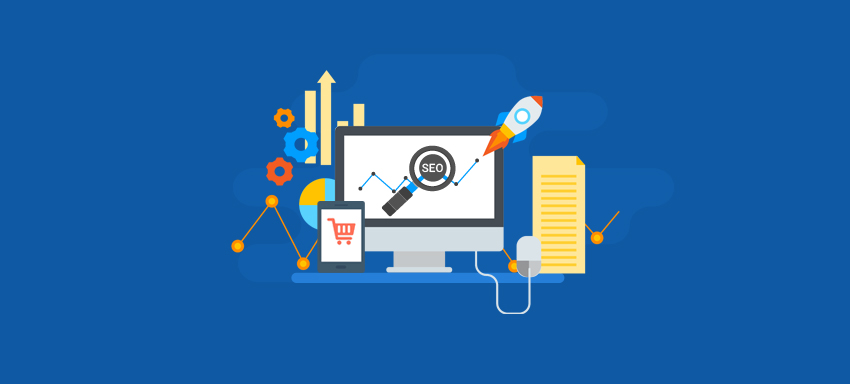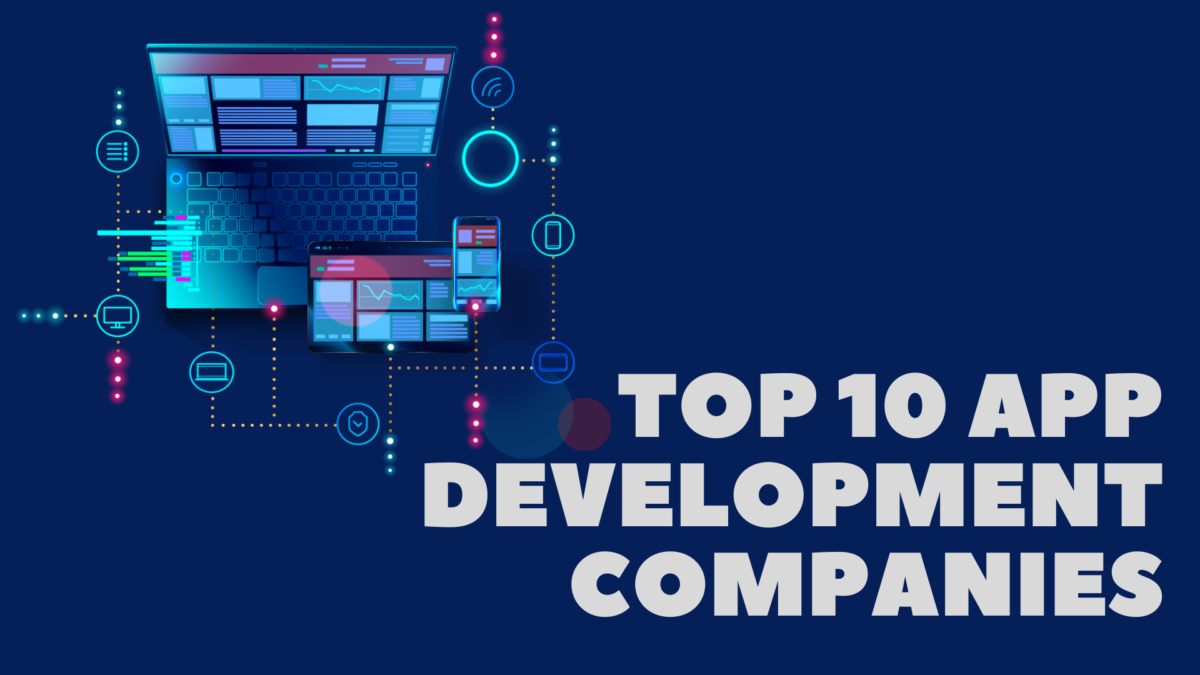Top 5 Trends in Mobile App Development to Watch in 2023: Must Read Trends
Mobile app development has come a long way since the first smartphone was introduced in 1992. Today, there are millions of apps available on various app stores, catering to all kinds of needs and interests.
Mobile app development is an ever-evolving industry, and it’s essential for developers to stay up-to-date with emerging trends to create innovative and engaging apps. As we approach 2023, there are several exciting trends in mobile app development that are set to shape the future of the industry.
With technology evolving at an unprecedented pace, mobile app trends are also evolving rapidly. From 5G technology and artificial intelligence (AI) to the Internet of Things (IoT) and blockchain, this blog will explore some of the top trends to watch out for in mobile app development in 2023.
Here are some top trends in mobile app development to watch out for in 2023.
1. 5G Technology
5G technology is the fifth generation of wireless networking that promises to revolutionize mobile app development. With 5G, developers can create apps that are faster, more efficient, and capable of handling massive amounts of data. This high-speed connectivity will pave the way for immersive technologies such as augmented reality (AR) and virtual reality (VR), which require high bandwidth connections to function properly.
One of the most significant advantages of 5G technology is its speed. 5G offers up to 10 times faster download speeds than 4G LTE, enabling users to access data and load content quickly. This increased speed opens up new possibilities for mobile app developers, who can create apps that are designed to run smoothly on 5G networks. These apps can offer a seamless experience to users, with no lag or buffering time.
Moreover, 5G technology’s high bandwidth capabilities will allow mobile app developers to incorporate more multimedia elements into their apps, such as high-quality videos and interactive graphics. This will enhance the user experience, making apps more engaging and interactive.
5G technology is set to revolutionize the mobile app development industry. Its high-speed connectivity, low latency, and high bandwidth capabilities will enable developers to create innovative and engaging apps that offer a seamless and immersive experience to users. As 5G continues to roll out across the world, we can expect to see more and more apps leveraging its power to provide next-level functionality and performance.
2. Artificial Intelligence
Artificial intelligence (AI) has been a buzzword in the tech industry for several years now, and it’s no surprise that it’s also a top trend in mobile app development. With the rise of gadgets and smart devices such as smartphones, wearables, and smart speakers, AI technology has advanced significantly in recent years, allowing developers to create intelligent apps that can understand and interpret user behavior, preferences, and needs.
One of the key advantages of incorporating AI into mobile apps is that it enables developers to offer personalized experiences to users. By analyzing user data and behavior patterns, AI-powered apps can suggest relevant content, products, and services, making the app experience more enjoyable and efficient.
Chatbots are one of the most common examples of AI-powered apps in mobile app development. Chatbots use natural language processing (NLP) and machine learning algorithms to simulate human conversations, enabling them to provide users with quick and accurate answers to their queries.
As AI technology continues to evolve, we can expect to see more and more apps leveraging its power to provide next-level functionality and performance.
3. Internet of Things (IoT)
IoT technology allows for physical devices to be connected and communicate with each other, resulting in an interconnected network of objects that can share data and perform automated tasks. With the number of connected devices rapidly increasing, mobile app developers have the opportunity to create innovative apps that leverage IoT technology to offer enhanced functionality and user experiences.
IoT-enabled apps provide users with greater control and convenience over their devices and environments. For instance, smart home apps allow users to control appliances, lighting, and temperature from a single interface. Similarly, wearable tech apps allow users to track fitness goals or monitor medical conditions.
Furthermore, IoT technology can also benefit businesses by improving efficiency across various industries. For example, manufacturers can use IoT technology to optimize supply chain management and warehouse operations. The possibilities for IoT-enabled mobile app development are endless , and as more devices become connected, we can expect to see even more innovative applications of IoT technology in the years to come.
4. Blockchain
Blockchain technology has been making waves across the tech industry, and it’s no surprise that it’s now a top trend in mobile app development. Blockchain is essentially a decentralized digital ledger that can be used to record transactions and other data in a secure and transparent manner. This technology has the potential to revolutionize how mobile apps function, offering a range of benefits for developers and users alike.
One of the primary advantages of blockchain in mobile app development is its ability to enhance security. By using a decentralized network of nodes to verify transactions and data, blockchain makes it more difficult for hackers to compromise the integrity of an app’s data. This is particularly important for mobile apps that handle sensitive user information, such as financial or healthcare data.
5. Cloud Computing
Cloud computing technology involves hosting applications and data on remote servers, rather than relying on local storage and computing power. By leveraging the scalability and flexibility of the cloud, mobile app developers can create more sophisticated and powerful apps that offer a range of benefits for both developers and users.
One of the primary advantages of cloud computing in mobile app development is its ability to enhance app performance and reliability. By using cloud-based services such as databases, serverless computing, and content delivery networks (CDNs), developers can improve app responsiveness, reduce latency, and ensure seamless user experiences. This is particularly important for mobile apps that require real-time data processing or rich media content.
Finally, cloud computing can also offer enhanced security and data protection for mobile apps. By using cloud-based storage and encryption solutions, developers can ensure that user data is protected against unauthorized access and cyber threats.
As this technology continues to mature, we can expect to see even more innovative use cases emerge in the years ahead.
Conclusion
Mobile app development is an industry that is constantly evolving. With technology advancements occurring at an unprecedented pace, it is essential for developers to keep up with emerging trends to meet user needs and stay ahead of the competition. The above trends are just some of the top ones to watch out for in the coming years, and we can surely expect many more exciting developments to come.










